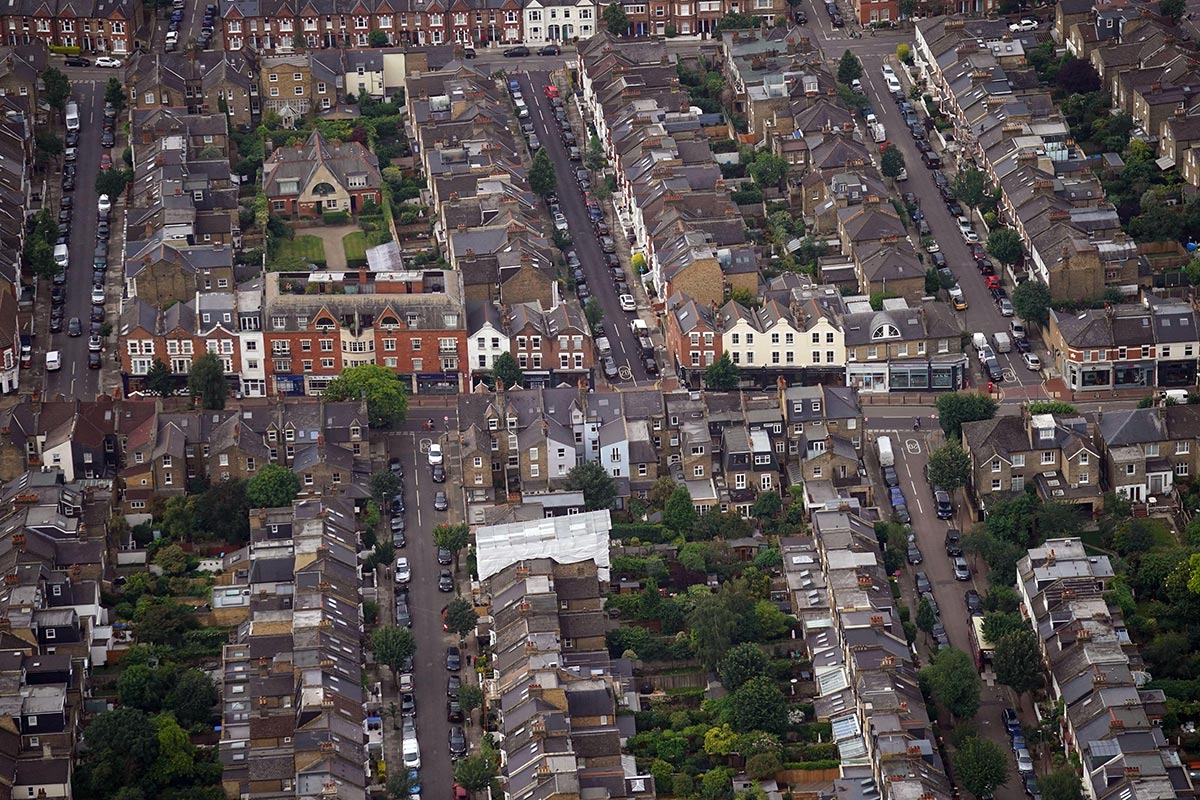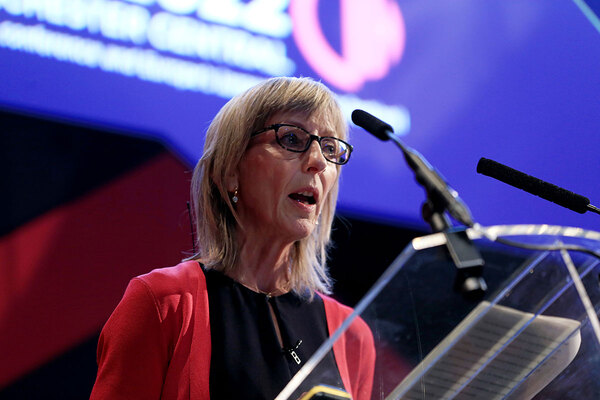RSH’s proposed consumer standards require social landlords to physically inspect all homes
The Regulator of Social Housing (RSH) has launched a consultation on a revision to consumer standards that proposes social landlords must physically inspect all their homes to understand their conditions.

The consultation document that the RSH published this morning says “registered providers must have an accurate record at an individual property level of the condition of their stock, based on a physical assessment of all homes, and keep this up to date”.
It does not define “up to date”, the interpretation of which the RSH is likely to leave to housing providers’ discretion.
The RSH is consulting on four revised standards designed to protect tenants and improve the service they receive: the Safety and Quality Standard, the Transparency, Influence and Accountability Standard, the Neighbourhood and Community Standard, and the Tenancy Standard. These will replace the Home Standard, Tenancy Standard, Neighbourhood and Community Standard, and Tenant Involvement and Empowerment Standard, and will apply to all housing associations and stock-holding councils.
The regulator intends that that they be in place from April 2024, following the consultation.
The revised standards are part of sweeping reforms to the regulation of social housing that were initially proposed more than six years ago in the wake of the Grenfell Tower fire.
The Social Housing (Regulation) Act became law last week after receiving royal assent and will give the RSH stronger powers to scrutinise landlords’ performance from April next year. These include regular inspections of landlords to assess whether they meet the new requirements, as well as additional powers to take action if they do not.
Social landlords already have to comply with standards set by the regulator and it takes action if they fail to do so. But the new requirements will be stronger and give tenants greater power to hold landlords to account.
The regulator is seeking a wide range of views on the proposed standards, including speaking directly to tenants. The consultation will run for 12 weeks and finish on 17 October.
Fiona MacGregor, chief executive of the RSH, said: “All social housing tenants deserve to live in safe and decent homes, and receive good-quality services from their landlords.
“We’re proposing new requirements to make sure this happens. We encourage tenants, landlords and others in the sector to have their say through our consultation.
“We’re gearing up for the biggest change to social housing regulation for a decade.
“This will include our landlord inspections from next April, as well as stronger powers to make landlords put things right when they breach our standards.”
The proposed new standards
The Safety and Quality Standard
This standard replaces and strengthens the existing Home Standard, expanding it to explicitly include safety. It will require landlords to provide “safe and good quality” homes and landlord services to tenants.
The RSH says there are “significant” variations in landlords’ understanding of the condition of their homes “and the recent cases of poor quality and disrepair coming to light demonstrate that not all tenants’ homes are being maintained to the safety and quality standards required”.
“This is unacceptable. Landlords must know the condition of their homes to ensure they comply with all relevant requirements,” the RSH said.
“We are therefore proposing to introduce a set of requirements that landlords have the evidence needed to maintain homes to required standards, minimising risks to tenants.”
The required outcome for stock quality will be that landlords have an “accurate, up to date and evidenced understanding” of the condition of their homes that “reliably informs their provision of good quality, well-maintained and safe homes for tenants”.
The consultation document outlines the RSH’s expectation that providers have an “accurate record at an individual property level” of the condition of their stock, based on a “physical assessment of all homes and keep this up to date”.
The regulator warned in May that rolling surveys of stock condition may no longer be sufficient and stressed the need for better data across the board.
Inside Housing research previously revealed that 50 of 102 councils survey all their stock to assess its condition. However, the remainder rely on smaller samples, some as low as 10%.
Major housing associations unveiled plans last year to survey all their stock to tackle disrepair and decarbonisation.
The Better Social Housing Review recommended in December that housing associations should publish a “thorough” audit of all social housing in England.
The Safety and Quality Standard as currently proposed will also require landlords to use their stock condition data to inform their provision of good quality, well-maintained and safe homes for tenants.
Landlords will continue to be required to ensure their homes are decent, as set out in the Decent Homes Standard.
They will also be expected to consider their tenants’ health and safety in the design and delivery of their services, including how they respond to requests for emergency repairs and reports of anti-social behaviour, as well as how they manage complaints relating to health and safety.
They must ensure that all actions arising from legally required health and safety assessments are carried out within appropriate timescales.
The revised standard also requires that social landlords must provide an “effective, efficient and timely repairs, maintenance and planned improvements service”.
This includes making sure that tenants can report repairs and maintenance issues easily, setting timescales for the completion of repairs and communicating these clearly to tenants. They must also keep tenants informed along the way.
The standard also includes a requirement concerning tenants seeking housing adaptations. Landlords must assist them in accessing appropriate services and clearly communicate to tenants and relevant organisations how they will do this. They must also co-operate with tenants, council departments and other relevant organisations to facilitate adaptations.
Transparency, Influence and Accountability Standard
This standard will require landlords to be open with tenants and treat them with fairness and respect so that they can access services, raise complaints when necessary, influence decision-making and hold their landlords to account.
As part of this, landlords must take into account tenants’ diverse needs. They will be expected to use relevant information and data to understand their tenants’ needs, including those arising from protected characteristics, language barriers, and additional support needs.
Landlords must also assess whether all tenants have fair access to and equitable outcomes from their services.
They must ensure that communication with and information for tenants is clear, “accessible, relevant, timely and appropriate” to the diverse needs of tenants.
Providers must also allow tenants and prospective tenants to be supported by a representative or advocate in interactions about landlord services.
On engagement, landlords will be expected to give tenants a wide range of meaningful opportunities to influence and scrutinise their strategies, policies and services. They will be expected to assist tenants who wish to implement activities to do this.
If a landlord is considering a significant change, such as an adjustment to management arrangements, it must consult affected tenants on its proposals at a “formative” stage and take those views into account when reaching a decision.
The consultation must be “fair and accessible”, provide tenants with adequate time, information and opportunities to consider and respond, set out actual or potential advantages and disadvantages to tenants, and demonstrate to affected tenants how the consultation responses have been taken into account in reaching a decision.
Another element of this standard requires landlords to provide tenants with information about the available landlord services, how to access those services and the standards of service.
The standard also requires landlords to survey tenants using the new Tenant Satisfaction Measures (TSMs).
The Neighbourhood and Community Standard
This will require landlords to engage with other relevant parties so that tenants can live in safe and well-maintained neighbourhoods and feel safe in their homes.
It includes requirements for landlords to work co-operatively with tenants, other landlords and organisations to contribute to the upkeep and safety of shared spaces associated with their homes.
Landlords should also work with partners to promote social, environmental and economic well-being in the areas where they provide social housing
This standard also includes a requirement that landlords work in partnership with appropriate local authority departments, the police and other relevant organisations to deter and tackle anti-social behaviour (ASB).
Landlords are expected to have a policy on how they work with organisations to tackle ASB and to set out clearly how they will tackle and deter hate incidents.
ASB must be easily reportable and landlords must provide “prompt and appropriate” action in response to ASB. They must support tenants who are affected by it and keep tenants informed about the progress of their cases.
The standard also sets out a requirement for landlords to work with other agencies to tackle domestic abuse and enable tenants to access appropriate support and advice.
Landlords should have a policy for how to respond to cases of domestic abuse and support local authorities in developing strategies and commissioning services for victims of domestic abuse and their children.
The Tenancy Standard
This sets requirements for the fair allocation and letting of homes and how tenancies are managed and ended by landlords.
Landlords will have to allocate and let their homes in a “fair and transparent” way that takes into account the needs of tenants and prospective tenants.
It includes requirements on tenancy sustainment and evictions.
The document says that “to emphasise the importance of tenancy sustainment, we are proposing to give greater prominence to the expectation that landlords support tenants to maintain their tenancy, making it a required outcome of the Tenancy Standard. We are also proposing to make it more explicit that this requirement applies not only to tenancies, but to licences.”
A licence gives a resident less protection from eviction than a tenancy does and is commonly granted in a supported housing context.
Landlords will be required to help tenants maintain their tenancy or licence, and must offer affected tenants advice and assistance when they end a tenancy or licence.
Providers must also offer information about the implications for tenure, rent and service charges to tenants seeking to mutually exchange.
Sign up for our regulation and legal newsletter
Already have an account? Click here to manage your newsletters











